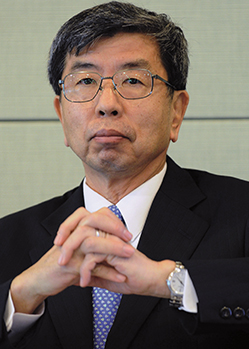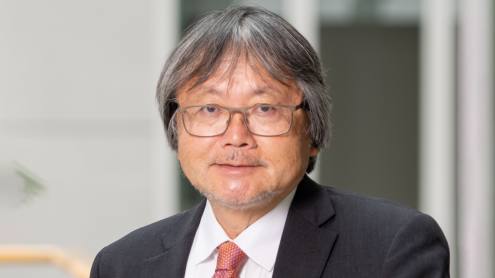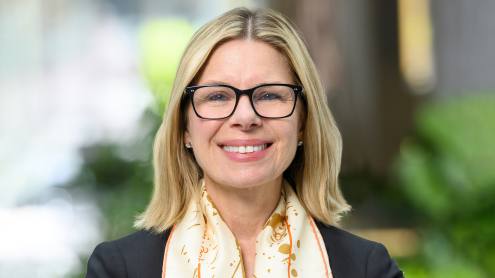At a time when the role of multilateral institutions is being questioned, Asian Development Bank (ADB) president Takehiko Nakao is convinced the organisation has played a key role in Asia’s development since its founding 50 years ago.
Through $267bn in approved projects, the ADB “has offered lending combined with knowledge in infrastructure, but also in social sectors [in the past five decades]. We have combined financing and expertise,” he says.
The bank’s 30-year co-operation with China is a good example of ADB’s work, he adds. “We have shared how to design and implement projects and how to take social and environmental impacts into account,” he says.
The ADB has always advocated for open economic systems and stronger governance through policy-based lending. “We have provided finance, but supported it with good discussions about policy,” says Mr Nakao. Regional co-operation has also been at the centre of ADB’s efforts.
Future hurdles
But to Mr Nakao, the bank’s work is far from done. Plugging Asia’s infrastructure gap – totalling $1500bn a year to 2030, according to the ADB – remains a challenge. Expanding the bank’s work beyond infrastructure and into societal factors such as ageing populations, education, gender and income inequality will also shape the bank’s future.
Although developing countries today mostly have access to international capital markets, the ADB’s essential role as a means for Asian economies to tap US or EU capital markets will remain, says Mr Nakao.
Supporting Asian countries in pursuing the UN Sustainable Development Goals and the COP21 Paris climate agreement will be a future priority. Addressing climate change is crucial, according to Mr Nakao. “It is obvious that the world is getting warmer. More serious disasters are happening due to climate change and Asia is more prone to these disasters than other regions. It is obvious that the world needs to address this issue,” he says.
So how will the policies of climate sceptic US president Donald Trump, who has threatened to pull the US out of the COP21 agreement, affect global efforts to tackle climate change? “Of course there are some new discussions globally about the existence of climate change, but we should… address climate change anyway. Asia has the opportunity to do this,” says Mr Nakao. The declining costs of renewable energy thanks to investment and innovation should make tackling climate change easier, he adds.
Uncertain times
Although many market participants see growing political uncertainty in the US and Europe as a risk for Asia, Mr Nakao is keen not to exaggerate the impact this could have on the region.
“I don’t think today’s open trade and investment regimes will step back to more protectionist ways on a global scale,” he says. “Further opening up may be more difficult at this point and there may be challenges. But I don’t think we will return to [the] days of import substitution and high tariffs. Overall, we enjoy the benefits of this globalised economy.”
However, addressing the unbalanced economic development experienced among some advanced economies is crucial. “More benefits have gone to highly educated people. So as we pursue open trade and investment regimes, we should also look at addressing social equity issues without damaging the economy,” says Mr Nakao.
Regional potential
Mr Nakao sees the strongest potential in populous south-east Asian economies. “If they grow faster, the impact will be large,” he says. “Their per-capita GDP is also low. There is a higher chance of higher growth based on convergence theory.”
Indonesia stands out for its exciting prospects. “President Joko Widodo’s administration is implementing tax reforms, increasing investment in infrastructure, deregulating trade and paying attention to rural regions such as Palau, East Timor,” says Mr Nakao.“I want to be optimistic.” He sees finance minister Sri Mulyani Indrawati as bringing stability to Indonesia’s economy.
In the Philippines, if president Rodrigo Duterte’s so-called war on drugs – which has claimed the lives of more than 7000 Filipinos so far – has provoked a stunned global reaction, his administration’s economic policy appears to be sober by comparison.
“If I look at the [Philippines] secretary of finance or the secretary of NEDA [the National Economic and Development Authority], they are very competent and professional people. Our relationship with the Philippines remains smooth,” says Mr Nakao. “There is a view that Mr Duterte’s government is very pragmatic and has [the] capacity to implement reform.” This includes potentially modifying the constitution, which limits foreign ownership of local companies to below majority.












